
Aomori Prefecture — Nostalgic Melodies Echo in Harmony with Nature and Festival
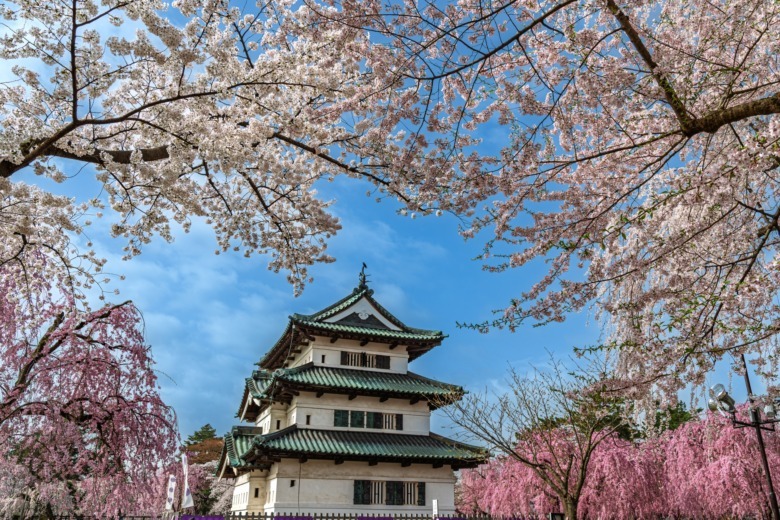
hirosaki kouen(park)
Aomori Prefecture, located at the northernmost tip of Honshu, is a land where pristine wilderness meets deep-rooted tradition. Here, ancient beech forests whisper secrets to crystal-clear streams, while massive festival floats illuminate summer nights with the passion of centuries-old celebrations.
A Land Where Spirits Dance with Ancient Trees
Step into the Shirakami Mountains, designated as a UNESCO World Natural Heritage Site in 1993, and you’ll find yourself in one of the world’s last remaining beech forest wildernesses. These primeval woods feel almost sacred—sunlight filtering through emerald canopies while your footsteps echo on paths walked by countless generations.
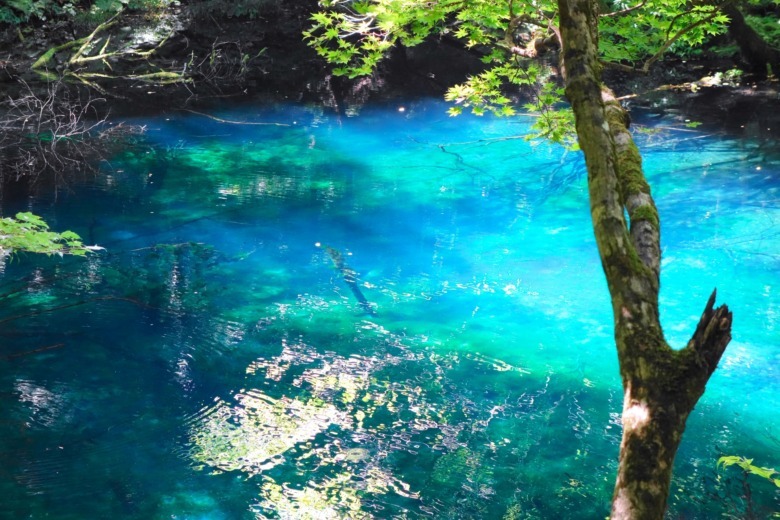
shirakami sanchi
Not far away, Lake Towada spreads like a mirror reflecting the sky, while the Oirase Gorge streams cascade over moss-covered rocks in a symphony that seems to have played since time began. Journey deeper into history at the Sannai-Maruyama Site, where excavated remains reveal a sophisticated Jomon settlement that flourished 5,500 years ago—part of the UNESCO World Cultural Heritage sites recognized in 2021. Here, ancient pit dwellings and towering wooden structures whisper stories of humanity’s remarkable relationship with this northern landscape long before recorded history began.
And then there’s Mount Osorezan—literally “Fear Mountain”—where Buddhist tradition holds that souls journey after death. This volcanic landscape of sulfurous springs creates an otherworldly atmosphere that has drawn pilgrims for over a millennium.
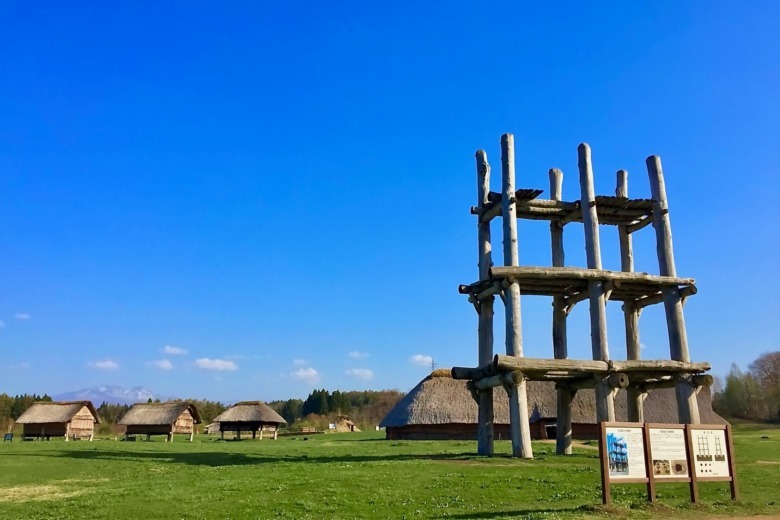
sannai maruyama iseki
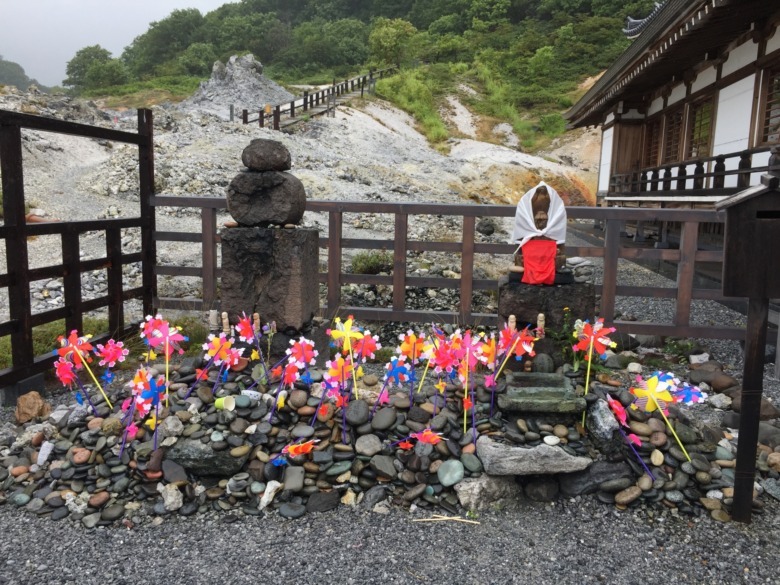
Sacred ground Osorezan
When Summer Ignites: The Magic of Nebuta
Every August, something extraordinary happens in Aomori. The streets fill with the thunderous beat of taiko drums, and enormous illuminated floats—some reaching five meters tall—parade through the city like moving works of art. These are the Nebuta floats, depicting legendary warriors and mythical creatures in vivid detail that seems to bring ancient stories to life.
Nebuta Festival embodies the energy and creativity that pulse through Aomori’s veins—a celebration so vibrant it draws visitors from around the globe. But this is just one facet of the region’s cultural treasures.
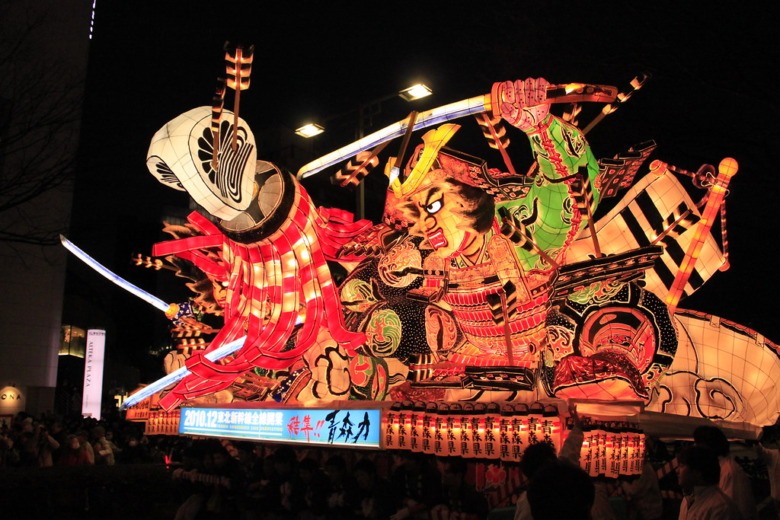
aomori nebuta : Photo by POHAN CHEN / CC BY 2.0
When spring arrives, Hirosaki Castle transforms into arguably Japan’s most magnificent cherry blossom destination. Over 2,600 sakura trees create a pink paradise that photographers and poets have tried to capture for generations, yet the real magic lies in standing beneath those blossoms as petals drift like snow in the warm spring breeze.
Flavors Born from Land and Sea
Aomori produces more apples than anywhere else in Japan, and locals possess an almost supernatural ability to distinguish between dozens of varieties. Visit an apple orchard in autumn and you’ll understand why—each fruit is treated like a work of art, with farmers who can spot the subtle differences that escape most visitors’ eyes.

Residents of Aomori can distinguish between different varieties of apple.
The surrounding waters offer their own treasures: Ooma tuna, caught in the treacherous currents off the peninsula, commands the highest prices at Toyosu (Tokyo)’s fish markets. Meanwhile, Mutsu Bay scallops are prized for their sweetness and texture, each one a testament to the pristine waters they call home.
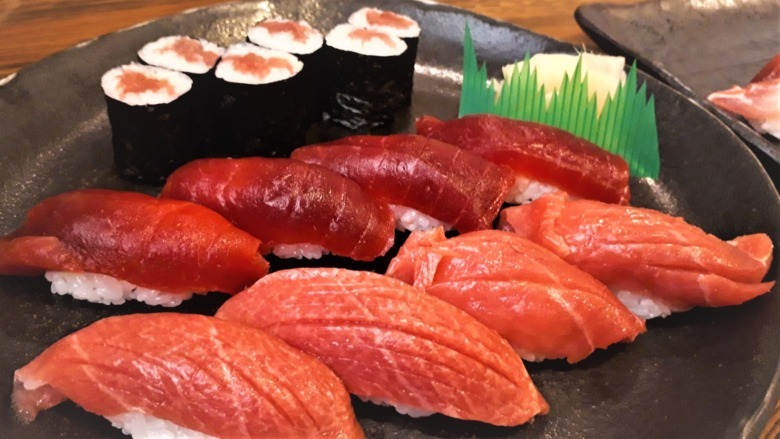
maguro sushi
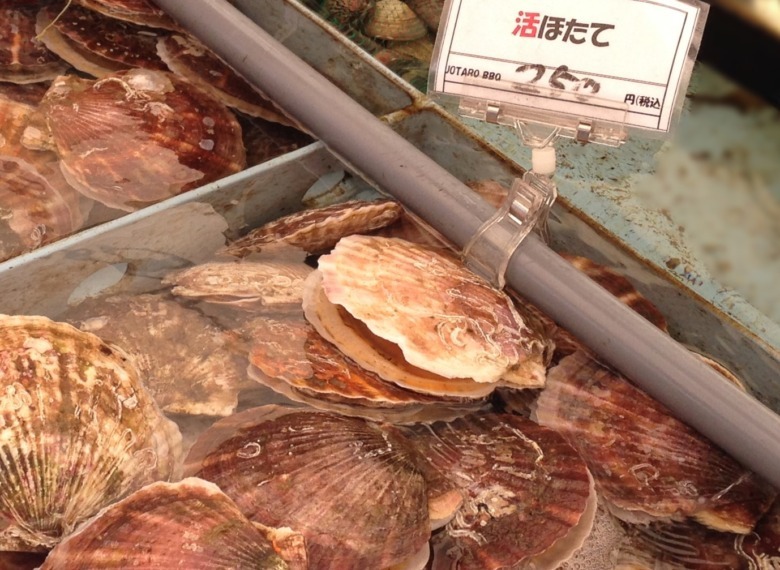
Aomori Hotate ( scallop )
The Heart of Touhoku: Resilient and Warm
The people of Aomori embody a character shaped by harsh winters and nurtured by strong community bonds. They may seem reserved at first—a trait that often surprises visitors—but once a connection forms, you’ll discover a warmth and loyalty that runs as deep as the region’s ancient roots.
This spirit finds its voice in “Ringo no Hitorigoto“, a beloved children’s song that personifies an apple with gentle melodies. The tune seems simple at first, reminiscent of traditional Japanese nursery rhymes, but beneath its sweetness lie subtle hints of the quiet strength that defines Touhoku people—resilience forged by harsh seasons and deep history.

Visit Aomori and you’ll discover a prefecture that doesn’t shout its wonders but whispers them like a gentle melody. It’s a place where ancient Jomon archaeological sites—recognized as UNESCO World Cultural Heritage in 2021—remind us of humanity’s long relationship with this northern landscape. Come for the festivals and natural beauty, but stay for the quiet moments when you realize you’ve found something authentically Japanese—a harmony between people, tradition, and the enduring rhythms of the seasons.



